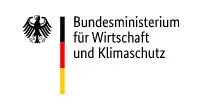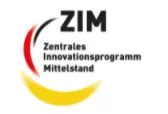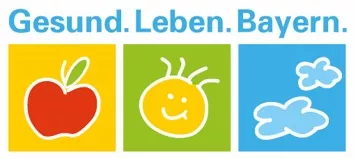

English version below.
Rhe-Turn – E-Monitoring zur Steigerung der Therapiequalität und funktionellen Kapazität bei jungen Rheumapatienten mit hoher Krankheitsaktivität
Bei der juvenilen idiopathischen Arthritis führen moderate und hohe Erkrankungsaktivitäten aus Sorge vor einer unkontrollierten Krankheitsverschlechterung oder Gelenkschädigung meist zu einer ärztlichen Empfehlung, Belastung durch sportliche Aktivität zu vermeiden. Dadurch steigt das Risiko eines chronischen Bewegungsmangels mit entsprechenden Folgeerkrankungen.
Ziel des Rhe-Turn Projekts ist die Verbesserung der nachstationären Versorgung rheumakranker Kinder und Jugendlicher im aktiven Krankheitsstadium mittels einer digitalgestützten medizinischen Begleitung der PatientInnen zuhause. Dazu entwickelt die Professur für Biomechanik im Sport zusammen mit den unten genannten Projektpartnern eine App, mit deren Hilfe junge RheumapatientInnen ein an die aktuelle Krankheitsaktivität angepasstes sicheres Bewegungs- und Sportprogramm absolvieren können. Diese App beruht auf telemedizinischen Ansätzen und beinhaltet Feedback-Funktionen sowie die Möglichkeit der Nachfrage nach Video-Sprechstunden.
Vor und nach dem Interventionszeitraum wird die Ausdauerleistungsfähigkeit der PatientInnen mittels PWC170 überprüft. Zudem wird die Funktion und Gelenkbelastung mit der dreidimensionalen Bewegungsanalyse von Alltagsbewegungen wie dem Gehen und Springen (Counter Movement Jump) getestet. Es finden Befragungen per App sowohl vor, während und nach der Intervention statt. Alle erhobenen Daten werden in der digitalen Sportberatung der Interventionsgruppe berücksichtigt.
Im Erfolgsfall kann die App flächendeckend implementiert und auf weitere chronische Erkrankungen übertragen werden.
Die Studie wird vom Innovationsausschuss des Gemeinsamen Bundesausschusses gefördert: Link zum Projekt
AnsprechpartnerInnen für das Projekt
Prof. Dr. Ansgar Schwirtz, Dr. Josephine Gizik, Nadja Baumeister
Konsortialpartner:
Deutsches Zentrum für Kinder- und Jugendrheumatologie (DZKJR) in Garmisch-Partenkirchen
aQua-Institut für angewandte Qualitätsförderung und Forschung im Gesundheitswesen GmbH
Deutsches Rheuma-Forschungszentrum Berlin (DRFZ)
Dienstleister, App Hersteller:
Rhe-Turn – E-monitoring to increase treatment quality and functional capacity in young rheumatoid arthritis patients with high disease activity
The diagnosis of juvenile idiopathic arthritis with moderate and high disease activity usually leads to a recommendation of avoiding stress through exercise out of concern for uncontrolled disease worsening or joint damage. This increases the risk of chronic lack of exercise with corresponding secondary diseases.
The aim of the Rhe-Turn project is to improve the post-hospital care of JIA patients in the active stage of the disease by means of digitally supported medical support at home. To this end, the associate professorship of biomechanics in sports, together with the project partners mentioned below, is developing an app that will help young rheumatism patients to complete a safe exercise and sports program at home adapted to their current disease activity (intervention). This app is based on telemedical approaches and includes feedback functions as well as the possibility to request video consultations.
Before and after the intervention period, the patients’ endurance performance is tested using the PWC170 test. In addition, the function and joint load are tested with the three-dimensional movement analysis of everyday movements such as walking and jumping (Counter Movement Jump). Surveys via app will take place before, during and after the intervention. All collected data will be considered in the digital physical activity promotion of the intervention group.
If successful, the app can be implemented nationwide and transferred to other chronic diseases.
The project is funded by the “Innovationsausschuss des Gemeinsamen Bundesausschuss” : Project Link
Project partners:
- German Center for Pediatric and Adolescent Rheumatology (Garmisch-Partenkirchen)
- aQua-Institut GmbH
- Deutsches Rheuma-Forschungszentrum Berlin
- Deutsche Kinderrheuma-Stiftung
- Deutsche Rheuma-Liga
Service provider, App manufacturer:
Active force production of skeletal muscles is dependent on muscle length and the instantaneous rate and direction of length change. However, the basic theories on muscle contraction do not account for the fact that muscular force production is dependent upon the muscle’s contractile history, such that when one type of contraction (e. g. isometric) is preceded by another type (e. g. eccentric/ lengthening contraction) distinctly different forces can be achieved.
Keywords: residual force enhancement, stretch-shortening cycle, eccentric muscle action
Dr. Florian Paternoster, Denis Holzer
DFG-Project: Contractile, elastic, and neural mechanisms of muscular performance enhancement during stretch-shortening cycles.
Cooperation: Prof. Dr. Daniel Hahn (Ruhr-Universität Bochum); Prof. Dr. Tobias Siebert (Universität Stuttgart); Prof. Dr. Wolgang Seiberl (Universität der Bundeswehr München)


eSocke
Plantar pressure distribution plays an important role not only in elite sports but also in every day activities. However, most devices are not designed for long-term data acquisition – neither in terms of comfort nor practicability. Therefore, a sock, which is able to measure pressure at several areas of the foot, shall be invented to ensure data acquisition in everyday life. The project is carried out with two industrial partners and funded by the German Ministry of Economy.
Cotact: Dominic Rasp | Prof. Ansgar Schwirtz

Healthy School - Study to promote writing motor skills and healthy posture while writing and sitting
A sedentary lifestyle, leading to orthopedic issues, is not only a problem in adults but has been observed in children as well. On top of that, many children show deficits in handwriting skills. As sitting behavior and handwriting skills correlate, a 3-week intervention, aiming at healthy sitting and handwriting behavior, will be conducted in approximately 200 first-graders. In a control group design, the long-term effects of this intervention is going to be observed.
The project is funded by the Bavarian Ministry of Health, the foundation of the Sparkasse Rosenheim, the Bürgerstifung Rosenheim, and the Verband deutscher Osteopathen.
Project leaders: Prof. Ansgar Schwirtz | Kathrin Schmalzl

